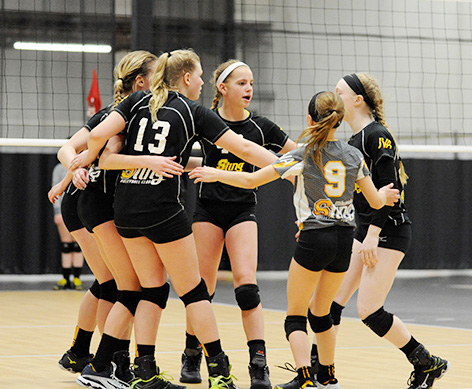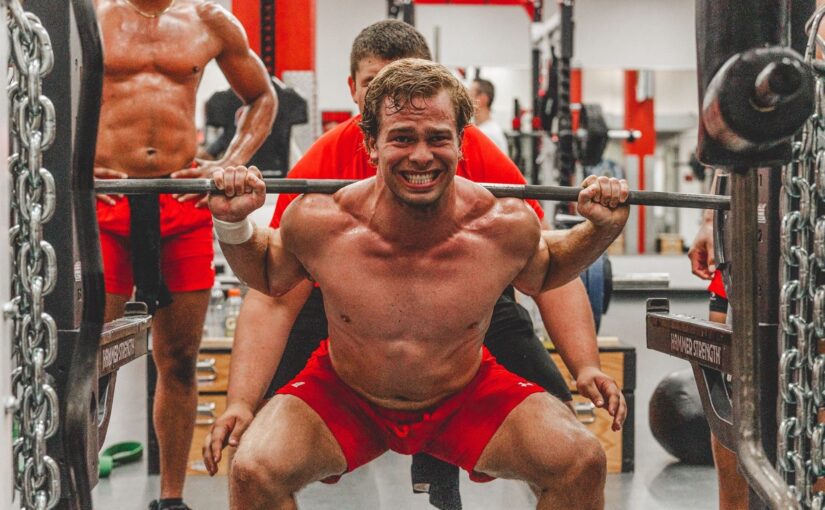6 strategies to have players buy into your program
While there are several factors that go into creating winning teams and individuals, perhaps the single most important one is commitment. Lots of people have dreams but amazingly few have the commitment necessary to pursue them relentlessly. Commitment is the critical bridge linking lofty dreams with the reality and necessity for meticulous planning, quality work on a daily basis and old-fashioned sweat.
 Coaches intuitively know that commitment is key. The vast majority of coaches are committed because of their passion for sport and coaching. They understand the tremendous amount of time it takes to build and maintain a successful program and are willing to dedicate themselves to it. It is easy to understand then why coaches often are confused and frustrated by lazy, apathetic and irresponsible athletes. It is hard for anyone to understand why an athlete intentionally throws away golden opportunities to improve by not consistently giving it his or her all.
Coaches intuitively know that commitment is key. The vast majority of coaches are committed because of their passion for sport and coaching. They understand the tremendous amount of time it takes to build and maintain a successful program and are willing to dedicate themselves to it. It is easy to understand then why coaches often are confused and frustrated by lazy, apathetic and irresponsible athletes. It is hard for anyone to understand why an athlete intentionally throws away golden opportunities to improve by not consistently giving it his or her all.
» ALSO SEE: Building positive relationships with sports parents
Although, ultimately, it’s up to each individual athlete to determine his or her commitment level, there are some things to do as a coach to enhance your athletes’ levels of commitment. Be sure to use the following suggestions to create and maintain a winning level of commitment in your program.1. Get to know each of your athletes individual goals.
The first key to commitment is to have a clear understanding of each of your athletes goals. The challenge is that each player is motivated by different things. Some athletes are motivated by external trophies and awards, others play for the challenge, others play for their parents attention and some might be playing to please you. Whatever the reason, a big key to coaching and commitment depends on your ability to understand what motivates each of your athletes.
In an effort to figure out what motivates each of your athletes, ask them to think ahead to the end of their career or time in your program. What would things look like if everything went ideally for them? Their answers to this question provide you with tremendous insights on their motivation.
2. Involve your athletes in the decision making.
As Stephen Covey, author of the best-selling book ‘The Seven Habits of Highly Effective People’ suggests, involvement is a prerequisite for commitment. What this means is you must involve your athletes in deciding the goals, rules and standards of the program. By soliciting and valuing their input, you clearly show your athletes all of you are in this together. You provide them co-ownership of the team and they are more likely to be committed to the program because it becomes our program and not just yours as a coach.
Former North Carolina mens basketball coach Dean Smith sat down with his seniors at the beginning of each year and allowed them to make the rules for the team. He acknowledges that giving your athletes the responsibility to set the rules actually is more powerful because they are more likely to follow them.
3. Make your practices challenging, fun and competitive whenever possible.
When you think about it, the time a player spends in practice is significantly more than in games. Motivating athletes for a game typically is easy as they are a challenge. Getting and staying sufficiently motivated for practices is much more difficult.
 To combat this problem at practice, it is partly up to you as a coach to make your practices as exciting and challenging as possible. Successful coaches invest the time to plan practices versus just showing up and winging it.
To combat this problem at practice, it is partly up to you as a coach to make your practices as exciting and challenging as possible. Successful coaches invest the time to plan practices versus just showing up and winging it.
Further, with the countless number of drills created, successful coaches use the drills that get their athletes juices flowing. They find ways to engage their athletes mentally through challenging drills and make them competitive whenever possible. They also seek their athletes input on drills and allow them occasionally to choose the drills they want to use.
If you are really innovative, consider having your athletes plan a practice from time to time. Don’t be concerned about it being a bad practice as oftentimes the practice is of high quality because the athletes are willing to work hard in the drills they choose.
4. Appreciate your athletes roles, especially your reserves.
Another way to improve your athletes commitment levels is to appreciate the roles they play for the team. It has been said that a persons greatest need is the need to feel appreciatedthis is especially true of athletes.
Your players need to feel like what they are doing has important value to the team. While your starters tend to get a lot of praise, it’s your reserves who especially need to be acknowledged for the important little things they do for the team. You are one of the best people to acknowledge the reserves because fans and the media often overlook their important contributions.
As Louisville mens basketball coach Rick Pitino notes in his book Success is a ChoiceRecognize the people who get less attention in the group because theyre not in the glamorous positions. Thank them publicly for their unselfishness and do it in front of their peers.
5. Be a model of hard work and commitment for them.
There is an old saying, which goes, The speed of the leader determines the rate of the pack. This especially is true in athletics. Your commitment level as a coach sends an unmistakable message to your players about the importance of commitment.
To gain their commitment, first prove to your athletes you are worthy of it. Consistently show them you are willing to pay the price of success. This means coming to practice early, conducting an organized, high quality practice and the willingness to stay afterwards to help people improve their games. As legendary former Iowa wrestling coach Dan Gable suggests, You must display a work ethic that’s even greater than the one you are trying to teach the athlete.
6. Show your athletes you care about them.
Finally, one of the best ways to earn your players commitment is to show them you care about them. When people feel appreciated and cared for, they extend the same loyalty back to you. They understand you value them as people and not just as an athlete.
If your athletes ever feel like you are using them to advance yourself with a higher paying job somewhere else, however, expect them to see through you very quickly and have their commitment levels drop off significantly. Thus, invest the time to develop a relationship with each your athletes. Ask them about things outside of sport like their families, friends and future goals. Demonstrate you are committed to their overall well-being and they then are much more willing to commit themselves to you.
For more articles on commitment, visit Jeff’s website at www.janssensportsleadership.





